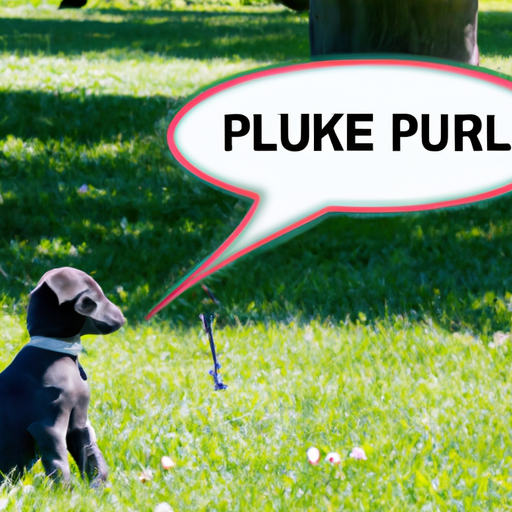Owning a puppy is a joyous and rewarding experience. However, excessive barking can sometimes become an issue. In this guide, we will walk you through different strategies on how to train your puppy not to bark.
Understanding Why Puppies Bark
Before we delve into the training methods, it’s crucial to understand why puppies bark. Like humans, puppies use their voices to communicate. They bark to express different feelings such as fear, boredom, hunger, and excitement.
- Fear: Puppies often bark when they perceive a threat. This could be a stranger at the door or a new object in their environment.
- Boredom: If your puppy is not getting enough physical and mental stimulation, they may resort to barking to vent their frustration.
- Hunger: Puppies may bark when they are hungry or when it’s their usual mealtime.
- Excitement: Puppies can also bark out of sheer excitement or when they are playing.
Understanding the reason behind the barking will help you address the root cause and not just the symptom.
Training Methods to Reduce Barking
There are several training methods to reduce barking. These include:
- Ignore the barking: If you believe your puppy is barking for attention, simply ignore them. Once they realize that barking won’t get them the attention they desire, they will stop.
- Use a ‘quiet’ command: Teach your puppy a ‘quiet’ command. Start by saying ‘quiet’ when they bark. Once they stop, reward them with a treat.
- Distract them: If your puppy starts barking, distract them with a toy or a command they already know.
- Provide physical and mental stimulation: Regular exercise and mental stimulation can help reduce barking due to boredom.
Remember, consistency is key. Stick to your chosen method and make sure everyone in the household follows the same approach.
When to Seek Professional Help
If you’ve tried these methods and your puppy’s barking is still out of control, it may be time to seek professional help. A professional dog trainer or a behaviorist can provide personalized training and behavior modification plans. They can also rule out any medical issues that might be causing excessive barking.
Training Equipment to Aid in Bark Control
There are several training tools that can aid in bark control. However, these should only be used as a last resort and under professional guidance.
| Equipment | Description |
|---|---|
| Anti-bark collars | These deliver a mild shock or a spray of citronella when your puppy barks. |
| Ultrasonic devices | These emit a high-pitched sound that only dogs can hear when they bark. |
Remember, these tools should only be used temporarily and in conjunction with positive reinforcement training.
Importance of Socialization in Bark Control
Socializing your puppy can greatly reduce fear-based barking. Expose your puppy to different environments, people, and animals. This will help them understand that not everything unfamiliar is a threat.
Using Positive Reinforcement
Positive reinforcement involves rewarding your puppy when they behave in the desired way. If your puppy stops barking when you command them to, reward them with a treat or praise. This will help them understand that not barking leads to rewards.
FAQs
Q: How long does it take to train a puppy not to bark?
A: It depends on the puppy and the consistency of the training. It can take several weeks to a few months.
Q: Can I use a bark collar on my puppy?
A: Bark collars should only be used as a last resort and under professional guidance. They are not recommended for puppies under six months old.
Q: How can I stop my puppy from barking at night?
A: Ensure your puppy is comfortable and has everything they need. A consistent bedtime routine can also help. If the barking persists, it may be due to a medical issue and you should consult a vet.
Q: Can I train my puppy not to bark at strangers?
A: Yes, socialization and training can reduce fear-based barking at strangers.
Training a puppy not to bark is a process, but with patience, consistency, and love, you can help your furry friend become a well-behaved member of your family. Remember, it’s okay for your puppy to bark sometimes. The goal is not to silence them but to help them bark appropriately.



